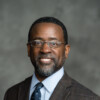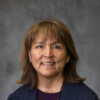Respect in Striving for Excellence (RISE)
The RISE Committee works with faculty to create and promote workplace climates in which everyone in the unit is welcomed, respected, and treated with professionalism and dignity. We follow a data-driven strategy to develop this advice, drawing from institutional data and scholarly research. Our ultimate goal is to retain a diverse and excellent faculty.
What is RISE?
RISE Resources
Climate Case Studies
Testimonials
Workshops for Leaders
Committee Members
WHAT IS RISE?
The RISE Committee is a group of faculty and staff working to support climates of respect and inclusion within academic units. It began in Fall 2018 as part of a pilot initiative funded by the Provost’s Office to improve the workplace climate of academic units. The RISE Committee offers in-depth and cross-disciplinary discussions of relevant higher education climate research, practices, and interventions. The committee provides resources and leads workshops for faculty and campus leaders to provide guidance on improving climate within their units.
Climate Case Studies
The U-M ADVANCE Program’s RISE Committee offers a series of resources, the Climate Case Studies, to support university leaders as they work to create more respectful, inclusive climates in their units. Each case study is centered around a common climate issue, with a list of ideas for how to approach the issue and concrete examples of what each approach might look like–all organized around RISE’s Eight Levers to Foster Respect and Inclusion. New case studies are release via our RISE Together Newsletter. Email [email protected] to receive the newsletter.
**Note: We recognize that the approaches shared in the Climate Case Studies will not work for everyone or in every context. Many factors, including the power dynamics of the unit, the social identities of the individuals involved, and external circumstances, affect the way a challenging climate issue might be addressed. We acknowledge that several of the approaches assume a particular leadership role and a certain amount of agency/power within the unit that do not reflect everyone’s experience.**
NEW RELEASE
When women’s ideas are co-opted
Climate Case Study #10
Resistance to They/Them Pronouns
Climate Case Study #9
A Climate Supportive of Disability
Climate Case Study #8
Distribution of Labor
Climate Case Study #7
Diversity and Excellence
Climate Case Study #6
Racially-motivated Threat
Climate Case Study #5
Interrupting a Bad Actor
Climate Case Study #4
Proactive New Leader
Climate Case Study #3
Unit-wide Email Blow-up
Climate Case Study #2
Resistance to Mentoring Responsibilities
Climate Case Study #1
Workshops for Leaders
Current Workshops
Raising Respect: Taking Action to Improve Faculty Climate: Interested in taking action to improve faculty climate? The ADVANCE Program RISE Committee is offering a cross-disciplinary, interactive workshop for campus leaders and faculty interested in cultivating a unit climate where all people feel respected, supported, and valued. This workshop is evidence-based and action-oriented! Utilizing the Eight Levers approach RISE developed, participants will leave this workshop with both data and ideas for faculty climate improvement.
To Register for any upcoming workshops, visit the ADVANCE events webpage.
Past Workshops
Cultivating a Climate for Faculty Equity: A highly interactive workshop for campus leaders interested in developing a unit climate where all people feel respected, supported, and valued. This workshop focuses specifically on the climate barriers that BIPOC faculty face and offers strategies for dismantling those barriers.
Raising Respect: A Workshop for Campus Leaders: A cross-disciplinary, highly interactive workshop for campus leaders interested in developing a unit climate where all people feel respected, supported, and valued. This workshop is evidence-based and action-oriented, presenting both data and concrete strategies. The first segment presents a framework for climate and then reviews research, conducted at U-M and beyond, to make a case for caring about respectful workplace climates. The remainder of the workshop is an interactive discussion addressing how leaders can actively cultivate more respectful and inclusive climates in their units.
RISE Resources
Eight Levers to Shift Climate for Respect and Inclusion
What can you do to improve the climate in your unit? This handout from RISE’s “Raising Respect” workshop outlines eight focus areas for acting to improve climate.
Campus Climate Resources for Faculty
An evolving list of climate-related resources for U-M faculty that includes both individual and unit-level offerings. Learn what programs and services are available for faculty who are grappling with campus climate issues and/or working to improve the climate of their unit(s).
RISE Reference List
Developing Anti-Harassment Programs in Academic Societies and Meetings: A Resource Guide
The University of Michigan ADVANCE Program has compiled this information as a resource for those wishing to develop an anti-harassment program within their own scholarly or scientific society, meeting, or other professional setting.
Frequently Asked Questions: Retention of Science and Engineering Faculty Who are Women and/or Members of Racial/Ethnic Minorities
FAQ designed to give guidance re: climate and its effect on the retention of faculty that are women and/or members of racial/ethnic minorities.
Creating a Positive Departmental Climate: Principles for Best Practices
Important general principles of effective leadership.
Creating Work-Life Friendly Departments
Handbook created to show how policies, resources, and cultures that are work-life friendly are key to the University of Michigan for the recruitment, promotion, and retention of top scholars.
ADVANCE Climate Research Studies
The U-M ADVANCE Program aims to improve our campus environment for faculty in four general areas: recruitment, retention, leadership, and climate. The ADVANCE Program assesses the campus climate through a series of campus-wide faculty surveys as well as individualized assessments of schools and departments.
Testimonials
Committee Members
RISE Committee 2024-2025 members are senior faculty and staff drawn from across campus. For a list of former RISE members, visit our committees webpage.

Christine Simonian Bean
CRLT Theatre Program
Show/hide bio

Vincent Hutchings
Political Science
Show/hide bio

Mike Liemohn
Climate and Space Sciences and Engineering
Show/hide bio

John Montgomery
Chemistry
Show/hide bio

Yeşim Orhun
Business Administration, Information
Show/hide bio

Denise Sekaquaptewa
ADVANCE Director, Psychology, LSA
Show/hide bio

Sophie Walters
Prevention Education, Assistance, Resources (PEAR)
Show/hide bio

Chris Torres
Education
Show/hide bio


